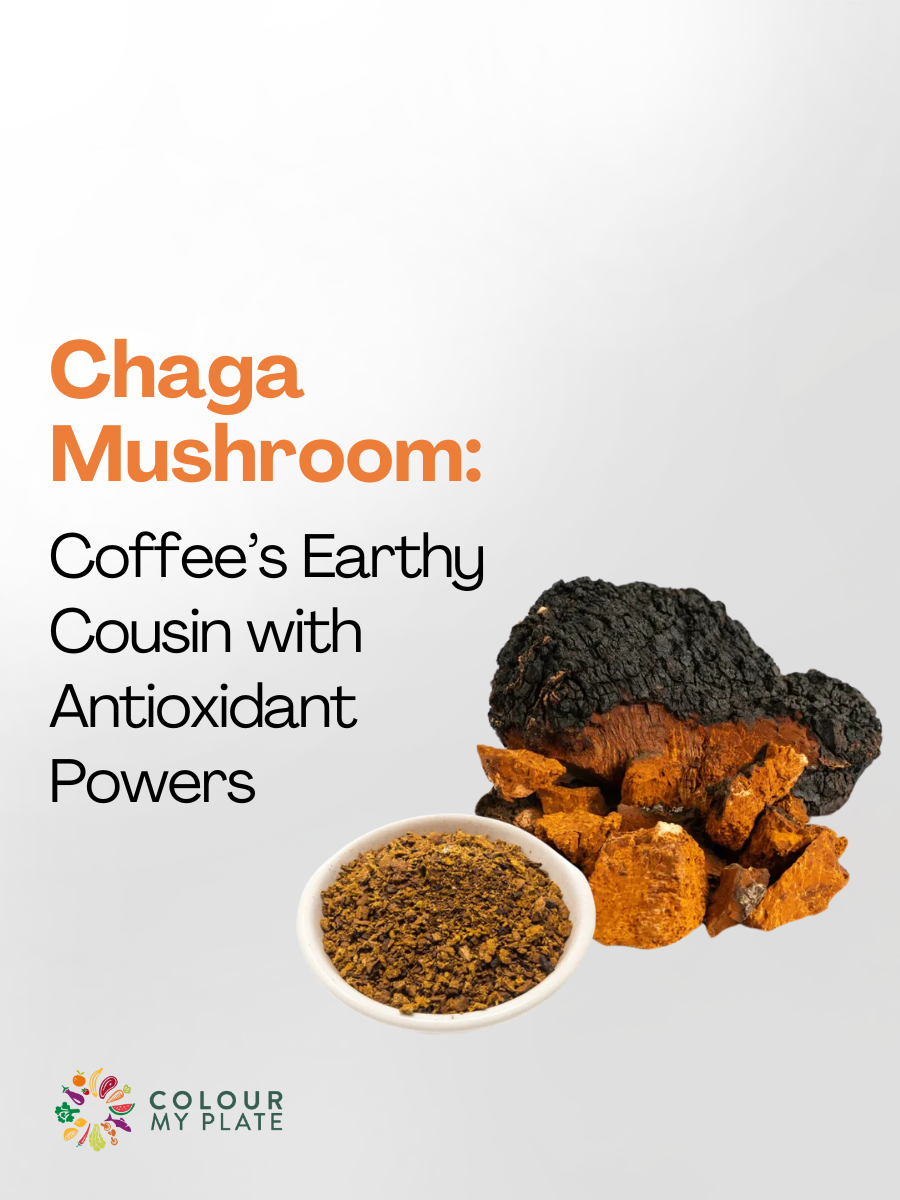
![]() 2 Jul 2025
2 Jul 2025
If you love your morning cup of coffee but hate the jitters, you might want to get acquainted with Chaga mushroom. It’s coffee’s earthy cousin that’s gaining serious attention in the health world.
More people are swapping out their second cup of coffee for a warm mug of Chaga mushroom tea. Why? Because this unique fungus offers a rich, grounding flavor with a hefty dose of antioxidants, and none of the caffeine rollercoaster.
Chaga mushroom (Inonotus obliquus) grows on birch trees in cold climates like Siberia, Canada, and parts of Northern Europe. Unlike the classic cap-and-stem mushroom you’re picturing, Chaga looks more like a burnt chunk of wood or charcoal. But inside, it holds powerful bioactive compounds that people have used for centuries.
Chaga is most commonly consumed as a tea or extract, offering a deep, slightly bitter, earthy flavor, somewhat reminiscent of black coffee, but without caffeine.
Let’s compare Chaga mushroom tea to coffee:
Of course, coffee also contains antioxidants, it’s not a villain here, but Chaga mushroom offers a very different profile and may be a great alternative for those looking to reduce caffeine intake while still getting functional benefits.
While animal studies and lab tests have shown promising antioxidant and anti-inflammatory effects. It’s important to note that large-scale human research on Chaga mushroom is still limited. That said, its long history in traditional medicine has driven interest in its potential for immune support and general wellness.
Before you swap your coffee habit for a daily Chaga routine, there are a few important things to consider:
As with any supplement or herbal remedy, moderation and medical guidance are key.
Chaga mushroom may not give you the instant buzz of your favorite espresso. However, its antioxidant power, earthy flavor, and potential immune-boosting properties make it an interesting option for health-conscious people looking to support their wellness, without the caffeine crash.
If you’re curious, start with a small cup of Chaga tea, enjoy the ritual, and see how your body responds. And as always, check in with your healthcare provider, especially if you have any medical conditions, before making it a daily habit.

We noticed you haven't completed your delivery details.

Your message is sent